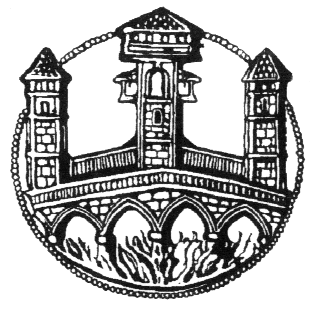- According to one of the expelled priests, Stefano Caprio, in an interview with the Italian newspaper "Avvenire" the denial of an entry visum into Russia for meanwhile five Catholic priests has, to begin with, little to do with church tensions. These are politically motivated decisions.
- I believe Archbishop Kondrusiewicz acts correctly when he continues to assure the Russian Orthodox Church, that she is a sister church of the local catholic church (Dominus Jesus No. 17). Cardinal Kasper acts correctly when he urges restraint in criticizing the Russian Church. Visits by representatives of various dioceses to Moscow and other places have been announced. The Italian dioceses lead the way as a good example. Bishop em. Franz Xaver Eder from Passau makes his farewell visit to the patriarchate of Moscow. Such visits strengthen the local catholic church in Russia and the orthodox counterparts see the plurality of the catholic church.
- Such visits also serve to reduce bias. That we presently hold the Orthodox Church of Russia responsible for the denial of visa to catholic priests, is due to our notion that the Russian church has a special influence upon the Russian government. The opposite is correct. Since the reign of Emporer Constantine almost all orthodox Churches are considered part of the state.
The Russian church, since Peter the Great (1700), is part of the cultural administration of the government, controlled and directed by a government official. It remained a part of the state apparatus until 1990. The church has had only 12 years up to the present to develop into a partner of the state.
In Germany also, the protestant churches were part of the cultural administration of the state up to World War I. In Bavaria the king selected the catholic bishops until 1918. The cathedral chapter was at that time the king‘s official supervisory body of the pastors. Thus, the churches in Germany had from 1918 until today more than 80 years time to develop their own self confidence in their relationship towards the state – the Russian church only 12 years.
- A second error is that Russia is a constitutional state in our sense. Russia is still developing into one.
Presently I am reading a book about the persecution and harassment of the Lutheran ministers in the former kingdom of Hannover after it was conquered and incorporated into Prussia in 1866. From 1866 until 1914 Lutheran and Catholic pastors were transferred for disciplinary reasons or sent into retirement when they were suspected to either sympathize with the deposed king, or even to visit him in his Bavarian exile or not to pray enough for the Prussian monarch. After 1914 until today , almost 80 years, Prussia had the opportunity to develop into a constitutional state. We should also allow the Russians that opportunity, twelve years are not enough time.
In Russia over 200 orthodox priests are obstructed in their office, forced into retirement or sent into distant foreign countries because they offended some government official or politician, e.g. criticizing the Chechenia policy. In connection with the foreign catholic priests the goverment uses the visum policy as a threat. That affects everyone who sharply criticized politics or anyone who was skillfully denounced. One does not force him into retirement but refuses him a visa or residence permit.
Such a visum refusal leads to an outcry in the international press, outside Russia no one speaks about the harassment of the orthodox priests in Russia itself. When churches or states stand up for religious freedom in Russia, then they not only should mention the few cases of catholic priests but also the harassed orthodox priests.
- We should take one other factor into consideration; the catholic parishes in Russia have a strong Polish accent. Polish priests regard Russia as their particular missionary area and sometimes tension arises in the catholic clergy between Polish and non Polish. Four hundred years ago the great Polish empire included Moscow. The Polish people installed a Czar in Moscow and they made the Orthodox patriarch in Moscow starve to death. Many Russians have not forgotten this. Today they have new fears since Poland belongs to NATO and soon the borders of the European Union will also include Poland.
And, a member of the European parlament could state without objection at a catholic congress at the beginning of September 2002, that the system of ethical values, common to Europeans, terminates at Poland‘s eastern border.
Dr. Nikolaus Wyrwoll
Ostkirchliches Institut
Ostengasse 31, D-93047 Regensburg
|

